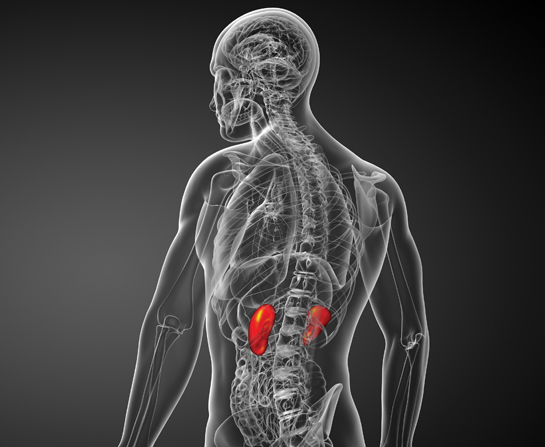Are Your Kidneys Okay?
April 28, 2022 Return

Chronic kidney disease (CKD) is a condition that causes your kidney function to deteriorate over time. At its late stages, you may be forced to undergo dialysis or even kidney transplant.
Fortunately, you can get screened for CKD if you suspect that you are at risk.
Who should get screened?
If you have a family history of kidney problems, diabetes and/or high blood pressure, you are at an increased risk – please consider getting screened as soon as possible.
The screening process is relatively simple and painless, as it involves checking your blood pressure and obtaining a urine sample for further testing and analysis.
The importance of early detection
You should not wait for signs of illness before you go for a screening. CKD may not show symptoms until it has reached an advanced stage, and by that point, your risks of developing various health complications are higher. If your CKD is detected early, your doctor can prescribe necessary treatment and medication to manage the disease and let your kidneys stay healthier for a longer period of time.
As an example, let us take a look at renal anaemia, which commonly develops in people with CKD.
From the kidney to the heart
Renal anaemia may occur in people with early stages of CKD, and it can worsen as the CKD progresses. It develops when the kidneys, damaged as a result of CKD, fail to produce the sufficient amount of erythropoietin (EPO), a hormone necessary to stimulate the production of red blood cells by your bone marrow. These red blood cells are important to transport oxygen to the tissues in your body.
When renal anaemia is left untreated, your heart has to work harder to pump more blood to the rest of your body. In time, the walls of the main pumping chamber, called the left ventricle, would enlarge and thicken, causing them to become less elastic. The ventricle may also increase in size.
Such changes can increase your risk of heart problems, even a potentially fatal heart attack.2 In fact, according to the National Kidney Foundation (US), heart disease is the major cause of death in people with CKD!
If your CKD is detected in its early stage, your doctor would be in a better position to monitor your condition closely. As such, renal anaemia can be detected in its early stage, and treatment can be given to manage the condition. Treatment options include iron pills, injections of modified forms of EPO (such as epoetin beta and methoxy polyethylene glycol) and red blood cell transfusion.
The earlier, the better
Similar to renal anaemia, other complications associated with CKD would be better managed or treated if your CKD is detected early. Therefore, if you believe that you are at risk, don’t hesitate. Talk to your doctor as early as possible to arrange for a screening.
References:
National Kidney Foundation (US). About chronic kidney disease. Retrieved on July 10, 2015 from https://www.kidney.org/kidneydisease/aboutckd
The National Institute of Diabetes and Digestive and Kidney Diseases (US). Anemia in chronic kidney disease. Retrieved on July 10, 2015 from http://www.niddk.nih.gov/health-information/health-topics/kidney-disease/anemia-in-kidney-disease-and-dialysis/Pages/facts.aspx
Locatelli, F, et al. (2003). Effect of anaemia on left ventricular hypertrophy in end-stage renal disease. The European Journal of Heart Failure Supplements 2/2;207-212
[1] National Kidney Foundation (US). About chronic kidney disease. Retrieved on July 10, 2015 from https://www.kidney.org/kidneydisease/aboutckd
[2] The National Institute of Diabetes and Digestive and Kidney Diseases (US). Anemia in chronic kidney disease. Retrieved on July 10, 2015 from http://www.niddk.nih.gov/health-information/health-topics/kidney-disease/anemia-in-kidney-disease-and-dialysis/Pages/facts.aspx
[3] Locatelli, F, et al. (2003). Effect of anaemia on left ventricular hypertrophy in end-stage renal disease. The European Journal of Heart Failure Supplements 2/2;207-212
If you like this article, do subscribe here.
